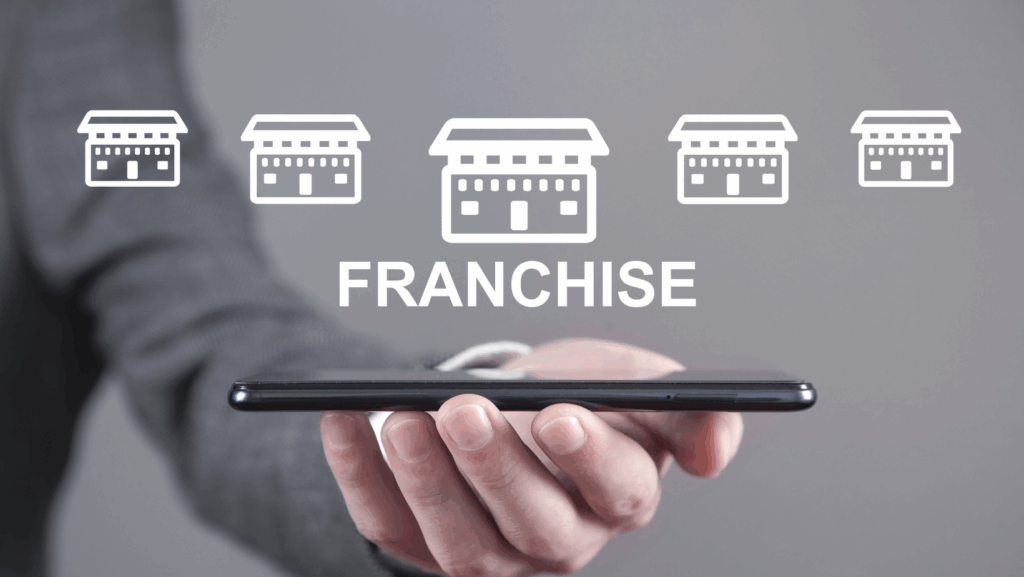Franchising sounds simple on paper. You buy into an existing brand, follow their system, and (hopefully) profit. But before you get swept up in a flashy opportunity or a smooth sales pitch, there’s something critical to understand: not all franchises are built the same.
Some are turnkey. Some need years of sweat equity. And some, well, let’s just say they’re not for the faint-hearted.
If you’re new to all this and looking at franchising in Singapore or anywhere else, understanding the type of franchise you’re buying into could save you thousands (and a massive headache).
Let’s break it down.
1. Product Distribution Franchises
Ever notice how most gas stations or car dealerships carry the same brand across different locations? That’s a product distribution franchise. It’s one of the oldest models and usually involves selling a manufacturer’s products, but you don’t always get the full business model or support system that comes with other franchise types.
In this case, you’re often handling large inventory, managing shipping, and dealing with volume-based revenue. It can work well if you’ve got some experience in sales and supply chain. But if you’re looking for a plug-and-play business, this might feel a bit… clunky.
Think big brand beverages, cars, and appliances. You’re selling the stuff, not the full package.
2. Business Format Franchises
This is the one most people picture when they hear the word franchise. You get the brand, the operations manual, the training, the marketing support—basically, the whole setup. It’s like buying into a business-in-a-box.

Fast food joints? Check. Gyms? Yep. Tutoring centers, coffee chains, salons? All part of this format.
Here’s the upside: you’re not reinventing the wheel. You follow the system, and if it’s a solid brand, it tends to work.
Here’s the catch: you also don’t get much wiggle room. Want to change the menu or try a different ad campaign? Not happening. The franchisor controls a lot. For some folks, that’s great. For others, it’s stifling.
3. Job-Franchise or Owner-Operator Models
This is for the person who wants to work in the business, not just on it.
These are often lower-cost franchises like cleaning services, home repair, dog walking, or even tutoring. You’re usually the face of the business, especially in the early days, and you’re out there doing the work.
You won’t need a huge team or a big storefront. Sometimes, you can even work from home. That said, the trade-off is your time. If you don’t show up, the business doesn’t either.
A quick side note: these kinds of businesses can also be flexible enough to run from anywhere, which is why some people look into learning new skills online first. For example, this language program has helped people pivot into tutoring or education-related franchises. It’s not for everyone, but it’s a path worth considering.
4. Investment Franchises
Want to own a business without getting your hands dirty? Investment franchises might be your lane. You put up the money, hire a team, and monitor the numbers.
Think hotels, large restaurants, or multi-unit franchises. You’re not flipping burgers or checking in guests — your focus is on the business strategy and ROI.
But heads up: this route usually comes with a hefty price tag. You’ll need deep pockets, decent management skills, and strong financial oversight. If you’re not ready to treat this like a serious investment (with real risk), it might not be the right move yet.
5. Conversion Franchises
Got an existing business you want to level up? Some franchise systems let you convert your independent shop into a branded franchise. You keep running your location but adopt their branding, systems, and training.
Say you run a small pest control company. Instead of building your brand from scratch, you join an established franchise network. In return, you tap into their marketing machine and reputation.
It’s like stepping onto a moving train instead of building one from the ground up.
Just make sure the transition is worth it, because once you’re in, it’s not always easy to switch back.
6. Home-Based and Mobile Franchises
Not every business needs a storefront. Some of the fastest-growing franchises right now are mobile or home-based. Think dog grooming vans, food trucks, mobile car detailing, or online consulting services.
They cost less to start, don’t lock you into long-term leases, and let you scale slowly. If flexibility and low overhead are high on your list, this is a good place to start sniffing around.
Just remember: lower cost doesn’t always mean easier. You still need hustle, customer service chops, and a solid game plan to grow.
Which Franchise Type Is Right for You?
Honestly? It depends.
- Are you hands-on or hands-off?
- Do you want flexibility or structure?
- Can you manage a team, or do you prefer to go solo?
- Do you have startup capital, or are you bootstrapping?
Answering those questions will steer you in the right direction way faster than just looking at brand names or income projections.
There’s no one-size-fits-all. A food franchise might be your dream or a nightmare. A home-based cleaning business might look small, but it could turn into a six-figure hustle.
Take your time. Talk to other franchisees. Crunch the numbers. And walk away if something feels off. Your gut is usually smarter than a glossy brochure.
Final Thoughts
The franchise world is wide, weird, and full of promise—but only if you know what you’re getting into.
Don’t rush it. Understand the different models. Know your strengths. And make sure the business fits you, not the other way around.
If you’re exploring franchising in Singapore, start with brands that support first-time owners and train you, not just hand over a logo and wish you luck. The right fit will make all the difference.
And once you get going? Stick with it. Most franchise success comes from consistency and patience, not flashy moves.
Good luck out there.

